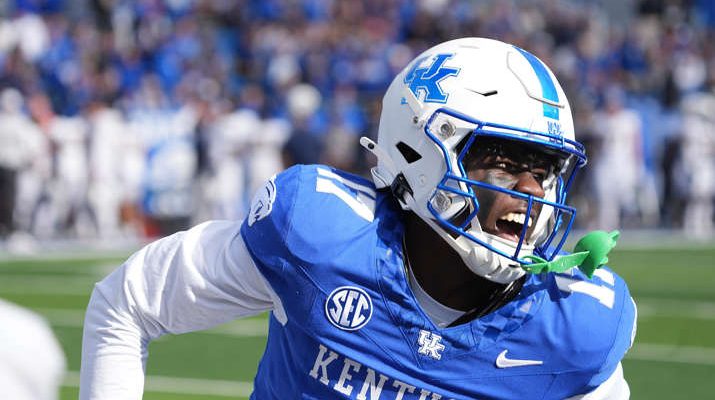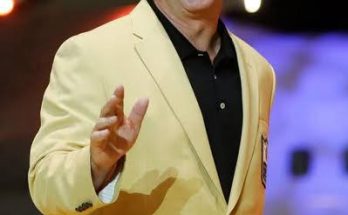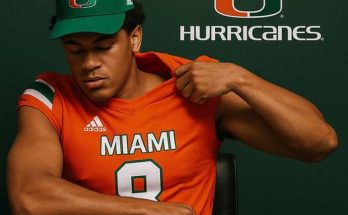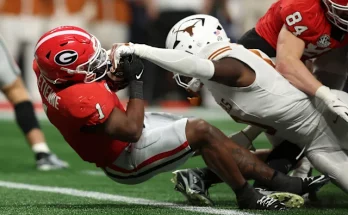Hal Mumme, the architect of the modern Air Raid offense and a name synonymous with offensive innovation, has unexpectedly returned to the college football sidelines, reigniting intrigue across the landscape of the sport. Known for his eccentric personality, wide-open passing game, and a legacy that influenced some of the brightest minds in football, Mumme’s return was both unforeseen and instantly headline-worthy. After years out of the spotlight, this new chapter is not just about a personal revival but also about rekindling a football ideology that once turned heads in the SEC and beyond. The coaching journey of Hal Mumme has been nothing short of cinematic—triumphs, controversies, reinvention, and now, a surprise act in what many thought was the closing credits of his career.
For those who followed college football in the 1990s, Hal Mumme’s name evokes an era when offenses began to abandon the conservative run-heavy approaches of the past and instead embraced a philosophy that prioritized passing, spacing, and tempo. When Mumme took the reins at the University of Kentucky in 1997, he immediately began reshaping the Wildcats’ identity. Pairing up with Tim Couch, a future No. 1 overall NFL draft pick, Mumme turned Kentucky into a must-watch offensive machine in the SEC—a conference then dominated by grind-it-out, defense-first teams. His schemes were revolutionary, confusing defensive coordinators and lighting up scoreboards. Yet, it wasn’t just the stats that made Mumme’s impact significant; it was the ripple effect that spread throughout the coaching community. Today, many successful college and NFL offenses—led by coaches like Mike Leach, Lincoln Riley, and Kliff Kingsbury—are deeply rooted in Mumme’s philosophies.
However, his time in Lexington wasn’t without its blemishes. NCAA investigations, recruiting sanctions, and internal turmoil led to his dismissal from Kentucky after the 2000 season. While some felt he was unfairly scapegoated, others pointed to the difficulties of managing both innovation and institutional expectations. Following his exit from Kentucky, Mumme’s career became nomadic. He bounced around smaller programs like Southeastern Louisiana, New Mexico State, McMurry, and Belhaven University, never quite regaining the national spotlight he once commanded. Yet, wherever he went, he brought the Air Raid with him—teaching, tinkering, and preaching the gospel of the pass.
In recent years, Mumme transitioned into more of a mentoring role. He consulted with teams, mentored young coaches, and even co-founded a startup spring football league. Many believed he was content to remain in the shadows, letting his coaching tree flourish while he occasionally lent his wisdom behind the scenes. That is, until the shocking announcement that Mumme would return to the college game, this time not as a figurehead or advisor, but as a coach back on the field and actively involved in game planning and development.
The news broke with little warning. A lower-division program with a passion for offense and an appetite for attention quietly announced that Hal Mumme would be joining their staff in a senior offensive role. The appointment immediately made waves on social media and sports talk radio. How could a 72-year-old offensive mastermind, out of the national spotlight for over a decade, be stepping back into the arena in such a hands-on capacity? The answer, according to those close to Mumme, is simple: the game has never left his heart, and now, more than ever, he feels compelled to give back to the game that made him.
Sources close to Mumme say he had been approached several times over the past few years by programs eager to inject life into their offenses. Yet, it wasn’t until this particular opportunity came along—a school willing to let him be himself, run his offense without interference, and mentor a young staff—that he felt the timing was finally right. Despite the miles on the odometer, Mumme remains mentally sharp, still able to diagram a full game plan with the precision of a chess grandmaster. For him, this isn’t about reliving past glory; it’s about proving that offensive brilliance, when rooted in principle and evolution, doesn’t age.
While many programs chase the latest trends, Mumme has always operated differently. He believes in principles over playbooks. His offense emphasizes repetition, route combinations, and trust between quarterbacks and receivers. It’s simple in design but sophisticated in execution. And for players in today’s game—where attention spans are shorter and innovation is constant—Mumme’s system provides a refreshing clarity. Instead of overloading athletes with hundreds of formations and audibles, he teaches them to master a core set of concepts until they become instinctual. This approach has proven successful not only at high levels of the sport but also at underdog programs looking for an edge.
Players under Mumme’s direction often describe him as quirky, intense, and endlessly passionate. He’s been known to call plays from a lawn chair, challenge conventional thinking in staff meetings, and toss out the rulebook altogether when it comes to football orthodoxy. But above all, he’s a teacher—one who sees football not just as a game, but as a platform for creativity, discipline, and intellectual engagement. At a time when analytics dominate and risk-averse decision-making is the norm, Mumme’s willingness to go for it on fourth down or throw deep on first and goal still feels exhilarating.
There is also a deeper emotional layer to this comeback. Those who know Mumme well say that being away from the game has weighed on him more than he let on. Coaching, for Mumme, isn’t a profession—it’s an identity. And with the recent passing of his longtime friend and protégé, Mike Leach, many speculate that Mumme’s decision to return was also inspired by a desire to carry forward the legacy they built together. Leach, who tragically passed away in 2022, had always credited Mumme for giving him his start and shaping his worldview on football. By stepping back into coaching, Mumme is perhaps not just honoring Leach, but also fulfilling an unspoken duty to the game they both loved.
As for expectations, no one is quite sure what this comeback will bring. The program Mumme joins won’t be contending for national titles or making headlines in the College Football Playoff rankings. But that’s not the point. The goal is to develop young players, entertain fans, and prove that ingenuity has no expiration date. For younger coaches on staff, the chance to work alongside a living legend is both humbling and energizing. Already, whispers from practices indicate that Mumme hasn’t lost a step when it comes to drawing up plays that leave defenders baffled.
Critics will no doubt question whether the game has passed him by. College football today is more complex, fast-paced, and media-driven than ever before. But those who’ve watched Mumme work know better. His offense was ahead of its time when it debuted, and in many ways, the sport has only now caught up. His belief in tempo, spacing, and quarterback autonomy has become standard across high school, college, and pro levels. What Mumme brings to the table isn’t just nostalgia—it’s a foundational philosophy that still works.
This unexpected return to the sidelines isn’t just a personal victory for Hal Mumme. It’s a reminder to the football world that age does not diminish insight, that experience should never be underestimated, and that sometimes, the best way to move forward is to return to your roots. In an era that prizes youth, tech-savviness, and social media engagement, Mumme’s reentry offers a refreshing contrast—a football mind forged in chalk dust and forged again through decades of trial and reinvention.
Ultimately, Hal Mumme’s comeback is not about rewriting his legacy—it’s about reaffirming it. He doesn’t need to win a championship to make a difference. Every touchdown his offense scores, every coach he mentors, and every quarterback he teaches how to read defenses is a victory in its own right. And in that sense, his legacy is already secure. Still, for the rest of us, it’s a thrill to have him back where he belongs: on the sideline, headset on, play sheet in hand, ready to shock the world one more time.



